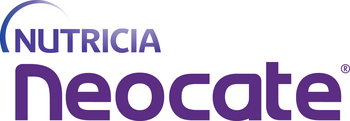Registered Dietitians
It’s FARE’s mission to equip RD/RDNs with the most updated information surrounding food allergies and intolerances to better serve the larger community.

In working with the 85 million Americans that are affected by food allergies and intolerances, we have learned that dietary restrictions are only part of their story. FARE is expanding access to care and raising food allergy awareness among diverse populations, but it starts with the healthcare provider.
Many individuals and families look to registered dietitians (RDs) and registered dietitian nutritionists (RDNs) for expert advice when it comes to managing their food allergy. Nutrition counseling sessions should reflect the Dietary Guidelines for Americans in taking personal preferences, cultural traditions and budget into account when making inclusive nutrition recommendations. It’s FARE’s mission to equip RD/RDNs with the most updated information surrounding food allergies and intolerances to better serve the larger community.

Pediatric Food Allergy Course
This comprehensive 9-month course covers the prevention, diagnosis and management of IgE-mediated and non-IgE-mediated pediatric food allergies. Upon successful completion, dietitians will be prepared to provide up-to-date and evidence-based care and medical nutrition therapy to pediatric food allergy patients and hold a FARE Certificate of Training in Pediatric Food Allergy. Additionally, FARE is a Continuing Professional Education (CPE) Accredited provider with the Commission on Dietetic Registration (CDR). CDR Credentialed Practitioners will receive 60 Continuing Professional Education units (CPEUs) for completion of this course.
Work Settings and Areas of Expertise
Clinical Nutrition
Dietitians may help a new caregiver navigate early introduction, teach label-reading skills to a newly diagnosed patient, or help an individual balance healthy eating with their dietary restrictions.
Food Service
From early childhood education to college dining and from hospitals to soup kitchens, dietitians may assist with nutrition analysis, participate in recipe development, and provide food allergy training to staff.
Resources
Common Allergens
Although nearly any food can trigger an allergic reaction, there are nine foods that cause the majority of reactions.
Newly Diagnosed
These resources are designed to help newly diagnosed patients and families begin their journey from diagnosis to living well with food allergies.
Prevention
Dietitians can work with parents and caregivers to prevent food allergy development in infants.
Available now!
Infant Feeding Strategies to Prevent Food Allergies
Guidelines now recommend infants be introduced to infant-safe peanut-containing foods as soon as they are developmentally ready, starting as soon as 4 to 6 months of age. Research has shown that it reduced the chance of developing a peanut allergy by as much as 81% in infants who were determined to be at high risk when the feeding started in infancy and continued until five years of age.
Available on the EatRight Store.
Learn More
Free Webinar
How to Maintain a Solid Start Following Non-IgE-Mediated Food Allergy Diagnosis
Available live and on demand at foodallergyacademy.org
Introduction to solid foods can be challenging for a caregiver and infant, and even more so after the diagnosis of a non-IgE mediated food allergy, such as food protein-induced enterocolitis syndrome (FPIES). In this webinar, our expert speakers Sakina Bajowala, MD and Marion Groetch, MS, RDN will explain non-IgE mediated food allergies and pathways to diagnosis, review guidelines around solid food introduction, outline the nutritional risks associated with non-IgE mediated food allergies, and emphasize the importance of shared decision making between caregivers and clinicians.
This live webinar awards 1 CPEU in accordance with the Commission on Dietetic Registration’s CPEU Prior Approval Program.




